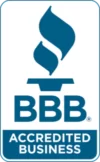If you work in the petrochemical industry in Pennsylvania, you already likely know that it is a potentially hazardous occupation. The Occupational Safety and Health Administration has industrial standards that govern safety protocols in this industry, and compliance with the regulations can minimize the risks.
Your employer is responsible for your health and safety on the job. However, he or she will expect you to take some responsibility as you navigate the hazards of your allocated tasks in the oil patch. A good start might be never to miss any safety training. Even if you think you have heard it all before, it will continue to test your knowledge, and re-training can prevent you from becoming complacent — and even more vulnerable.
Learn the safe exit strategy
Drilling sites will always pose fire and explosion hazards, and you can take the following precautions to help avoid becoming one of the oilfield fatality statistics:
- Always wear the fire-retardant clothing that your employer supplies.
- Become familiar with the escape routes in all the areas where you work.
- Your employer should make sure that building materials used for the facility are easy to keep clean and that, when possible, non-conductive and non-slip materials are used.
Long hours and fatigue
If your job involves operating heavy machinery, fatigue might be your downfall. The following points might keep you safe:
- Many gas and oil-related fatalities follow accidents involving heavy trucks and mobile machinery.
- Long hours of operating heavy vehicles or equipment can lead to fatigue-related accidents.
- If your employer has not yet done this, you could suggest that your employer establish a process of cross-training by which workers with less demanding jobs and operators of heavy machines learn each other’s jobs.
- Cross-training can produce more operators and, by alternating work schedules, shorter shifts on the more demanding jobs may limit fatigue-related incidents.
Equipment maintenance
When equipment fails in the petrochemical industry, the consequences can be catastrophic. You can improve your chances of avoiding injuries by making the following maintenance habits part of your own safety routine:
- Inspect equipment before every use to make sure start-up and shutdown procedures work as they should.
- Prevent unauthorized use of machines or equipment by always performing lockout/tagout procedures.
- Even if you are not the person responsible for maintenance, make sure you wipe down dirty equipment before putting it into storage or shutting down at the end of your shift.
Maintain communication
Your job might take you to remote locations, such as oilrigs out at sea or inhospitable drilling locations on land, or you might be hauling hazardous loads on roadways nationwide. Make sure you have the necessary communication equipment to stay in contact with your employer and emergency services at all times.
In the event of an accident
If, despite all your precautions to stay safe, you suffer a work-related injury, you should report it to your employer as soon as possible. You might be entitled to state-regulated workers’ compensation benefits to cover your medical expenses and lost wages. Although the claims process could be complicated, you would not have to navigate it alone. The support and guidance of an experienced Pennsylvania workers’ compensation attorney can simplify the administrative and legal proceedings.







